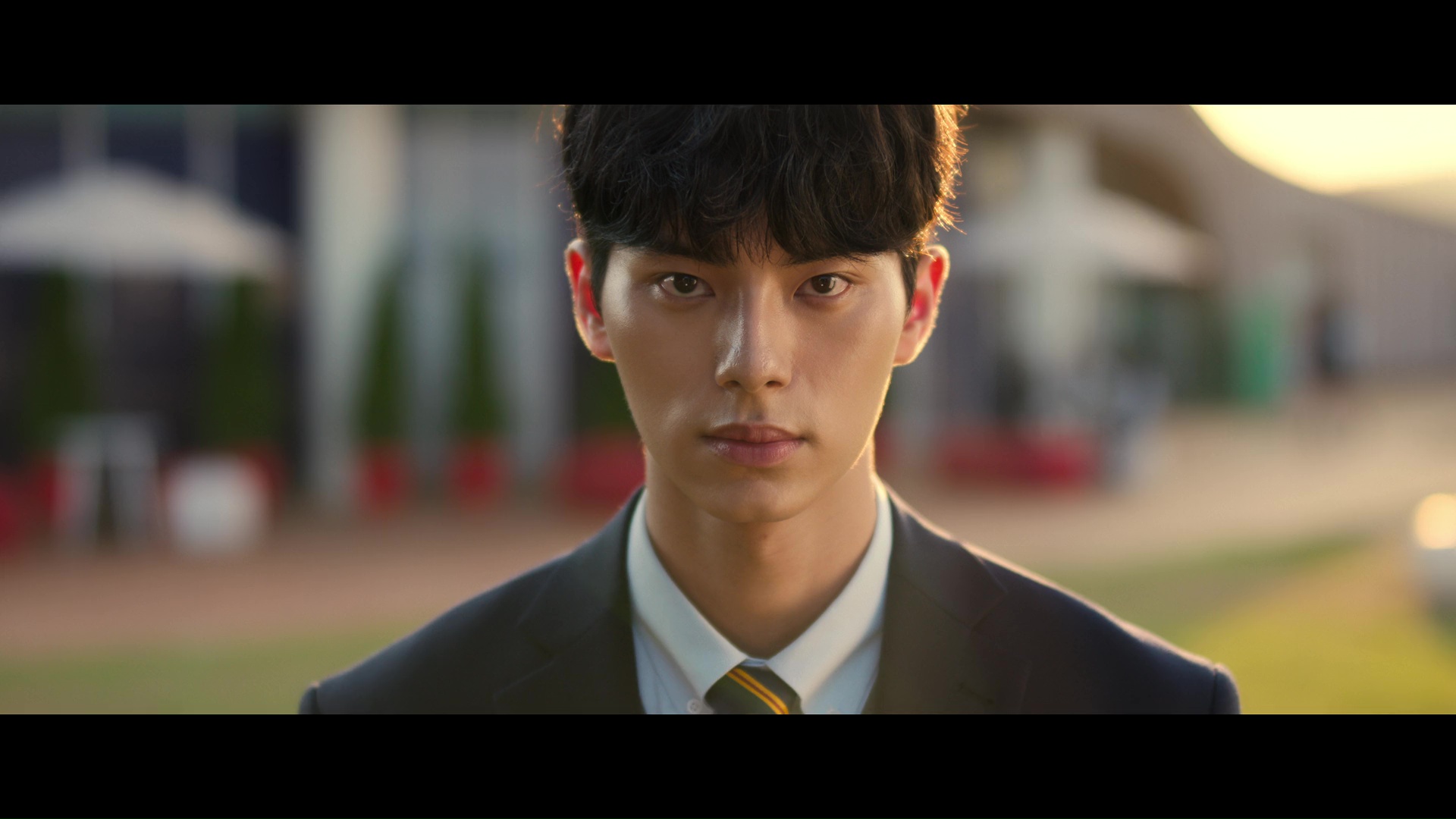
TYPE OF REVIEW ![]() : GOOD OL’ REVIEW
: GOOD OL’ REVIEW
Some spoilers. But it doesn’t really matter.

Another K-drama, another time I wish I could have avoided people’s opinions of it before I started watching. Because TikTok and Twitter were almost immediately lit up with comments about Netflix’s Hierarchy (하이라키) being everything from disappointing to just plain trash. Now, after completing the series’ seven episodes, do I think it is the worst drama ever? No not all. Do I think it’s any good? Absolutely not!
Bottomline up front, so many other Korean dramas have done the same themes, stories and ideas Hierarchy attempts here, but better.
Hierarchy centers around an elite private high school where teens of the top 0.01% of the country are sent by their uber-wealthy and powerful families. Those families and the school practice the idea of noblesse oblige by offering a limited number of scholarships to academically deserving students from, to be blunt, poor backgrounds. But those few scholarship students are treated like dirt and bullied by their wealthier and more powerful peers. Though the rich kids certainly don’t regard them as peers.
The series opens with the death of one of those scholarship students who is shown running from a seeming threat as he screams about exposing the evil and corruption that absorbs the wretched school.
Fast forward a certain time later as a new scholarship student arrives at the school. Kang Ha (Lee Chae Min) is at first a seemingly cheerful and optimistic young man. But we quickly learn (and it is quite obvious early on) that he has ulterior motives in coming to attend this school. And (don’t even worry about a spoiler alert), that motive being the dead student is his brother and he is here to avenge his death and uncover the truth.
His prime suspects, of course, are the four most elite of the elite students, a group of four friends including Jae-I (Roh Jeong Eui) and Ri An (Kim Jae Won), exes and children of rival conglomerates, the spoiled brat He Ra (Ji Hye Won) and politician’s son Woo Jin (Lee Won Jung). The four run the school, starting with Ri An whose mother’s company established and bankrolls it.
But Kang Ha is determined to expose the school violence, bullying and corruption that run rampant at the high school. Even if Ri An and his buddies are the perps and the adults and fellow students at the school turn a blind eye to the suffering of scholarship students.
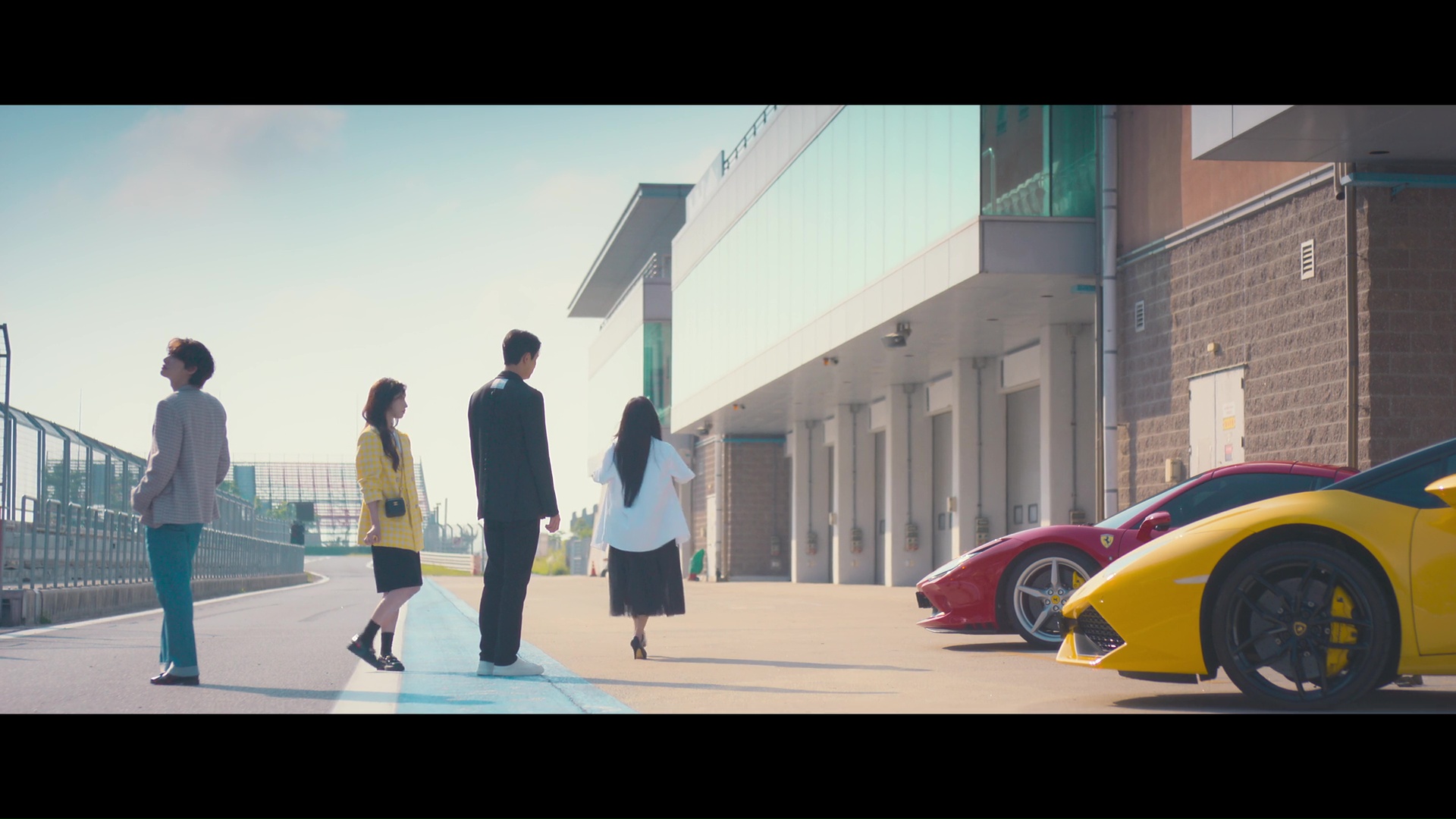
As I mention earlier, there’s no need to worry about spoilers because you probably will figure out most of the series within the first 15 minutes of the first episode. The series is quite predictable. There are hardly any twists or turns. Which can be okay. That is, if the rest of the series is put together and executed very well despite that predictability. But you’ll easily get the gist of how the seven episodes will play out right from the start.
Unfortunately for Hierarchy, so many things work against it. And most of those shortcomings are of its own doing.
The basic plot and premise is pretty sound. A young man walks into a hellhole in order to avenge his brother and expose the dark evil that overruns what should be a safe place for learning and enlightenment.
The series itself was billed as a dark revenge drama involving deadly secrets. But don’t be fooled by that pre-show hype because you don’t really get much of darkness, revenge or even deadly secrets in the first place.
The few actual mysteries that linger through the episodes fall flat on their face once the truths are eventually revealed. There’s absolutely no tension or excitement in what should be thrilling narrative climaxes and revelations. In fact, the narrative is so paper-thin, it’s hard to tell at which points, if any, are legitimate turning points or climaxes in the story.
The series is exhaustingly plot-driven. But when the plot itself is so flimsy, it ends up affecting the characters by twisting them every which way. With a story so predictable and filled with every high school K-drama cliché you could think of, the series would have been better served if it focused on a more character-driven narrative. Explore the students and their struggles and relationships.
The series ends up doing none of that, except for the requisite romance which almost feels out of place until you realize a lot of the trouble would not have even happened had these teens kept their clothes on.
Not to mention actually being the dark, noir-ish series that was being teased by Netflix before its premiere.
Hierarchy especially tosses aside the revenge angle of the story and instead reverts back to the “Let’s feel sorry for the rich kids with trash parents” cliché alongside typical teen love triangles. The series does everything it can to make you the viewer feel sorry for and empathize with these characters. But the series instead ends up making you either cringe or roll your eyes at the laughable attempts.
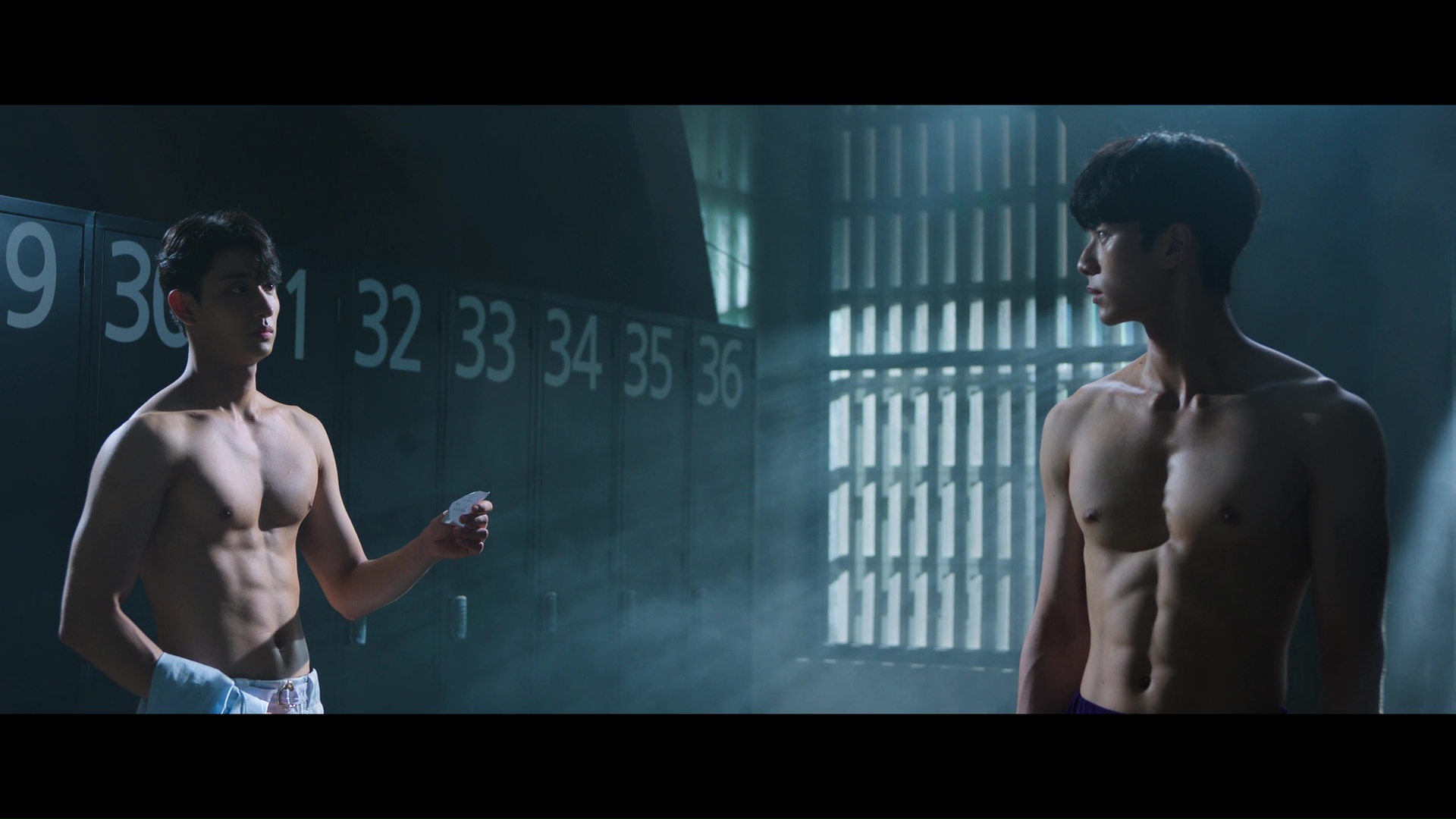
In addition to the flimsy plot, it is very obvious the series is one of those Netflix-funded productions that desperately tries to “westernize” typical Korean drama plots. Some people take issue with the “westernization” critique. But Hierarchy is probably the most blatant example of such a treatment. And it’s something they really don’t have to try so hard to do. Especially, again, when many other Korean dramas of the past have done similar, if not, identical stories and plots but in much stronger ways.
Scenes of American football being played on campus to the “edgy” scenes of 17-year-olds having sex in the backrooms or drugs being dealt in the locker room are so forced they end up actually being quite funny. At some points, it even feels like the series is a spoof or parody of the typical high school Korean drama. But nope. Hierarchy actually does take itself that seriously. And it seems to think that by making it stylistically comparable to “western” teen dramas, it will be more appealing to some specific demographic. But it’s hard to think what demographic that might be.
Which is really a shame because the series does assemble a pretty solid young cast. Unfortunately, the series seems more focused on showing off the leading men’s chocolate abs rather than them showing off their acting chops.
It’s hard to single out some of the young actors when the characters and the material that come with them provide almost zero opportunity for them to actually deliver anything but passable performances.
Roh Jeong Eui, Kim Jae Won, Ji Hye Won and Lee Won Jung as the rich foursome are merely given paper thin characters that even the most accomplished actor would struggle with elevating on their own.
Lee Chae Min, in his first lead role, shows great promise once we learn who Kang Ha is and what his goal is in coming to the high school. But the plot soon drags him down the wrong path and almost erases all the potential his character has in the beginning of the series.
If there are any actors who make the most of what little and thin material they actually get, it would be Kim Min Chul as the late Kang In Han and Seo Bum June as class president Nam Ju Won. Both Kim Min Chul and Seo Bum June are talented, though criminally underrated actors who have good experience and have plenty shown they are deserving of bigger roles.
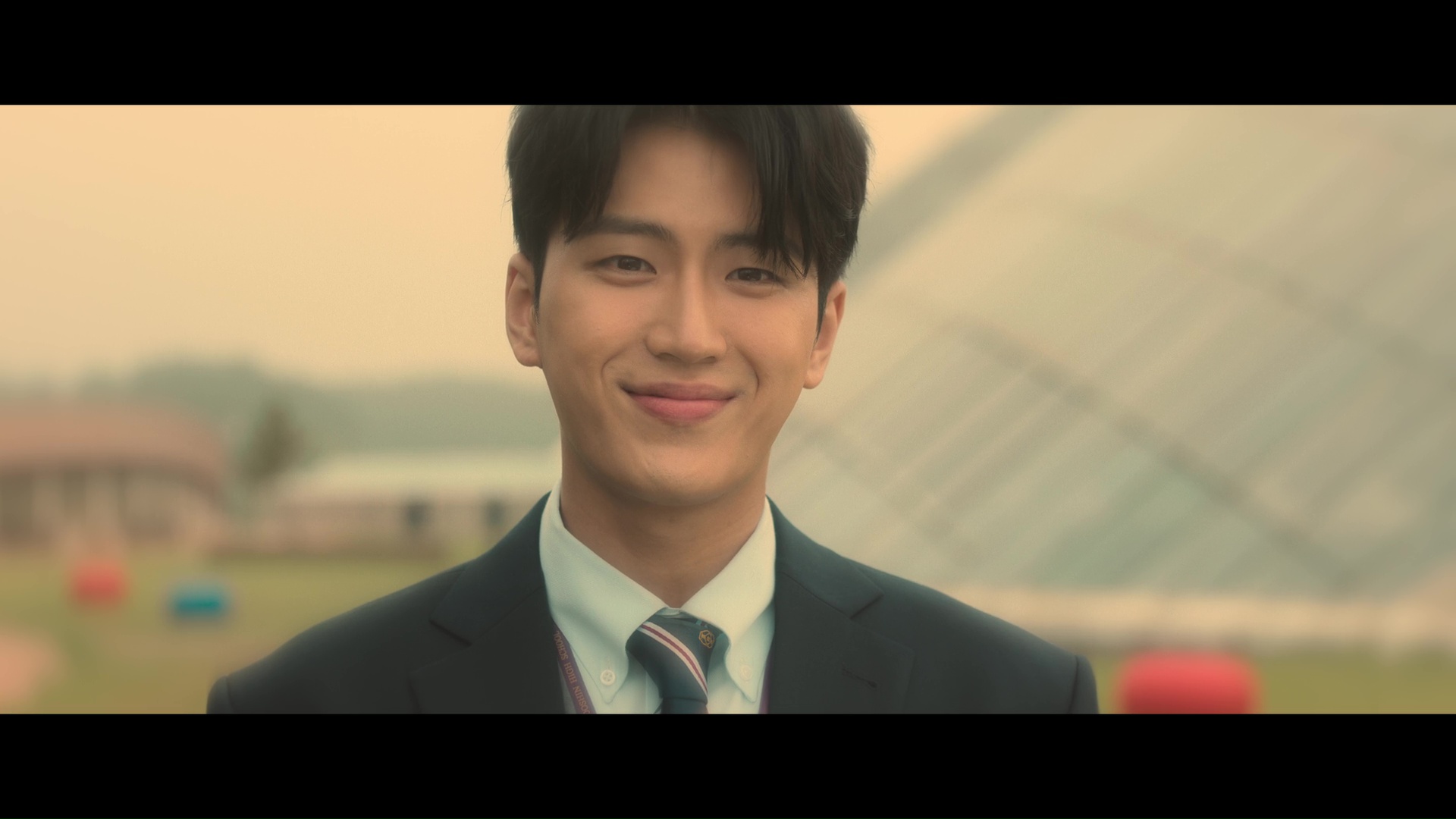
Here, Kim Min Chul gives the most affecting performances via flashbacks of Kang In Han before his tragic death/murder(?). If there’s one thing the plot-driven narrative does well, it is in getting us to immediately care about In Han and his sad fate. So when the series seems to forget what happened to him, that’s when things go even more awry.
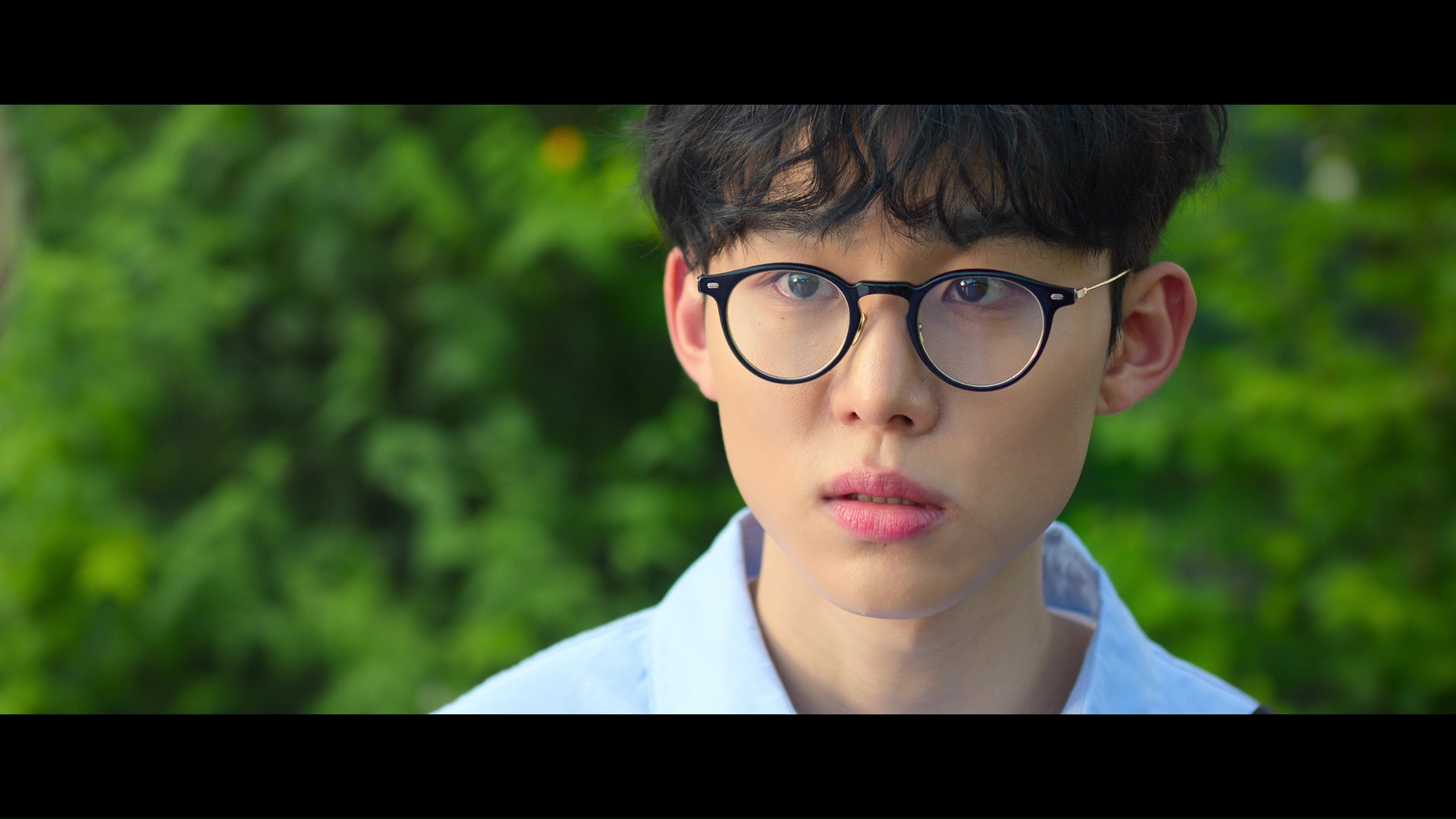
Seo Bum June, meanwhile, emerges as a big piece of the puzzle as Ju Won later on. And in the few scenes that he does get, he also delivers a strong performance. And ones that are far more emotionally affecting than our lead characters ever get the opportunity for.
Ultimately, Hierarchy drops the American football several times throughout these seven episodes. And in the end, it is actually a relief that there’s only seven. Though don’t miss the post-credits scene in the final episode for the threat of a possible second season for this series. But considering the mostly negative reception for these episodes, don’t bet on it getting picked up for more.
A solid cast with good potential and a premise that should be ripe for a juicy and engaging presentation is instead wasted away in poor and eyeroll-inducing execution. Hierarchy is just a contrived mess that tries too hard to be something it can never be. If you want to watch something that tackles similar themes, there’s plenty to choose from. And even if you do give Hierarchy a shot, you can always go to those other, better series to cleanse your palate later. And you’re going to need it.
Share:
Related posts ..
2 thoughts on “Good Ol’ Review: Netflix’s “Hierarchy” a Disappointing, Contrived, Try-Hard Mess”
Share your thoughts!Cancel reply
This site uses Akismet to reduce spam. Learn how your comment data is processed.

Series was a huge disappointment. Messy characters but not in a fun way.
True!